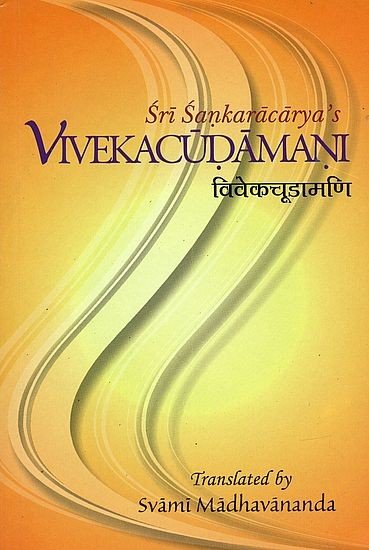Vivekachudamani
by Shankara | 1921 | 49,785 words | ISBN-13: 9788175051065
The Vivekachudamani is a collection of poetical couplets authored by Shankara around the eighth century. The philosophical school this compilation attempts to expose is called ‘Advaita Vedanta’, or non-dualism, one of the classical orthodox philosophies of Hinduism. The book teaches Viveka: discrimination between the real and the unreal. Shankara d...
Verse 302
ब्रह्मानन्दनिधिर्महाबलवताहंकारघोराहिना
संवेष्ट्यात्मनि रक्ष्यते गुणमायाइश्चण्डेस्त्रिभिर्मस्तकैः ।
विज्ञानाख्यमहासिना श्रुतिमता विच्छिद्य शीर्षत्रयं
निर्मूल्याहिमिमं निधिं सुखकरं धीरोऽनुभोक्तुंक्षमः ॥ ३0२ ॥brahmānandanidhirmahābalavatāhaṃkāraghorāhinā
saṃveṣṭyātmani rakṣyate guṇaMāyāiścaṇḍestribhirmastakaiḥ |
vijñānākhyamahāsinā śrutimatā vicchidya śīrṣatrayaṃ
nirmūlyāhimimaṃ nidhiṃ sukhakaraṃ dhīro'nubhoktuṃkṣamaḥ || 302 ||302. The treasure of the Bliss of Brahman is coiled round by the mighty and dreadful serpent of egoism, and guarded for its own use by means of its three fierce hoods consisting of the three Guṇas. Only the wise man, destroying it by severing its three hoods with the great sword of realisation in accordance with the teachings of the Śrutis, can enjoy this treasure which confers bliss.
Notes:
[In this Sloka Egoism is compared to a threeheaded snake. Sattva, Rajas and Tamas—balance, activity and inertia—are spoken of as its three hoods. The way to destroy it is through Realisation. When Egoism is gone, one is conscious of his real nature as Brahman. The appropriateness of the metaphors is obvious. ]
